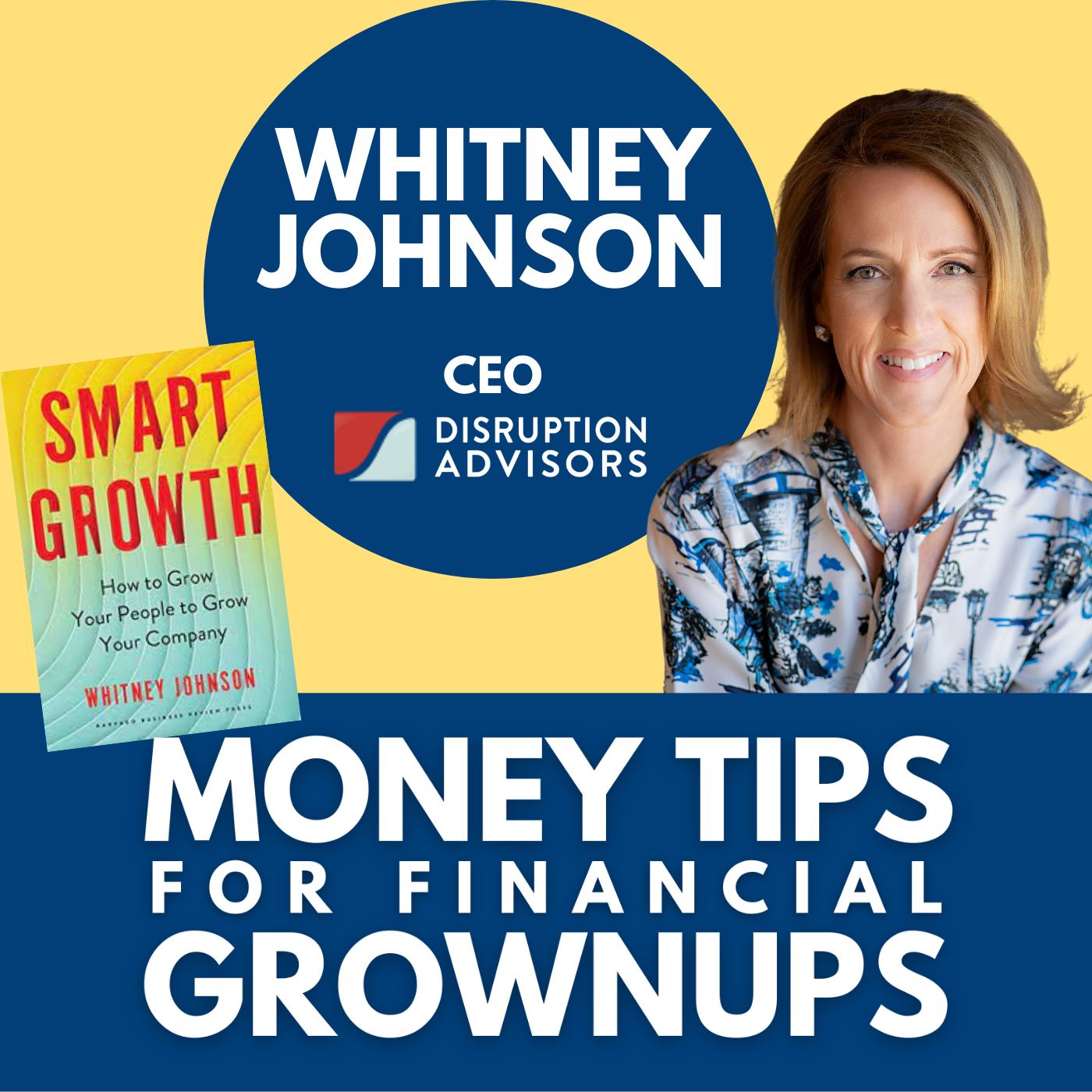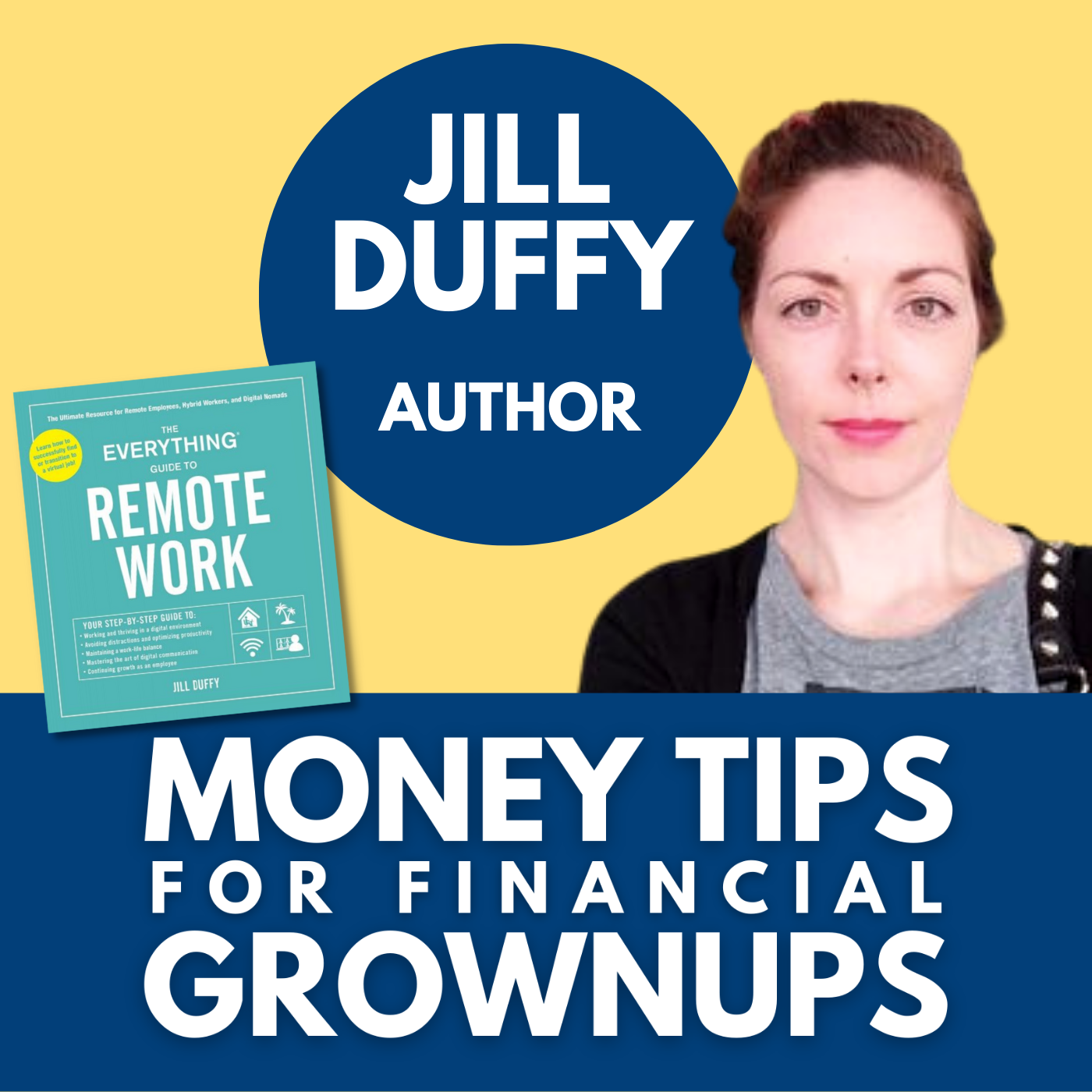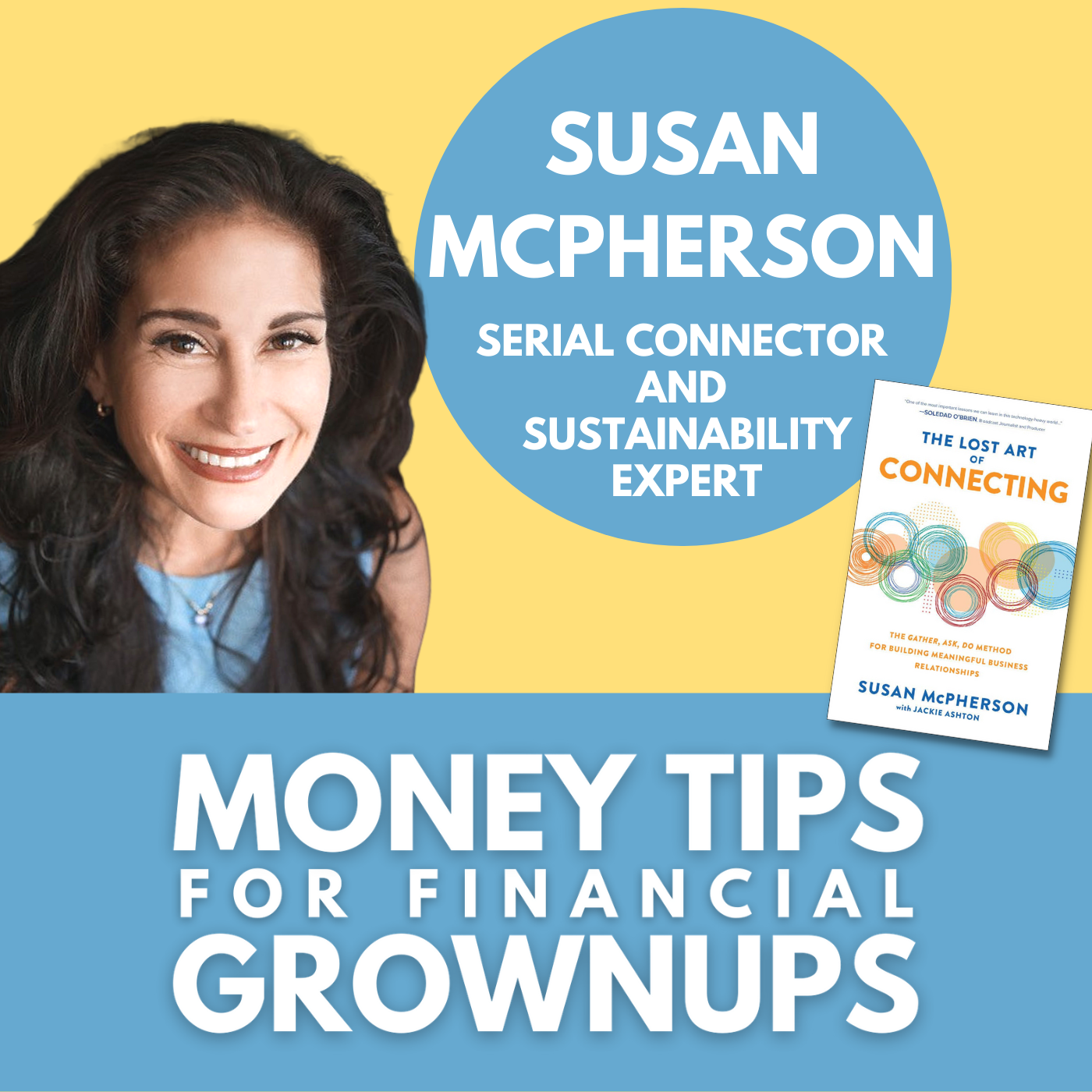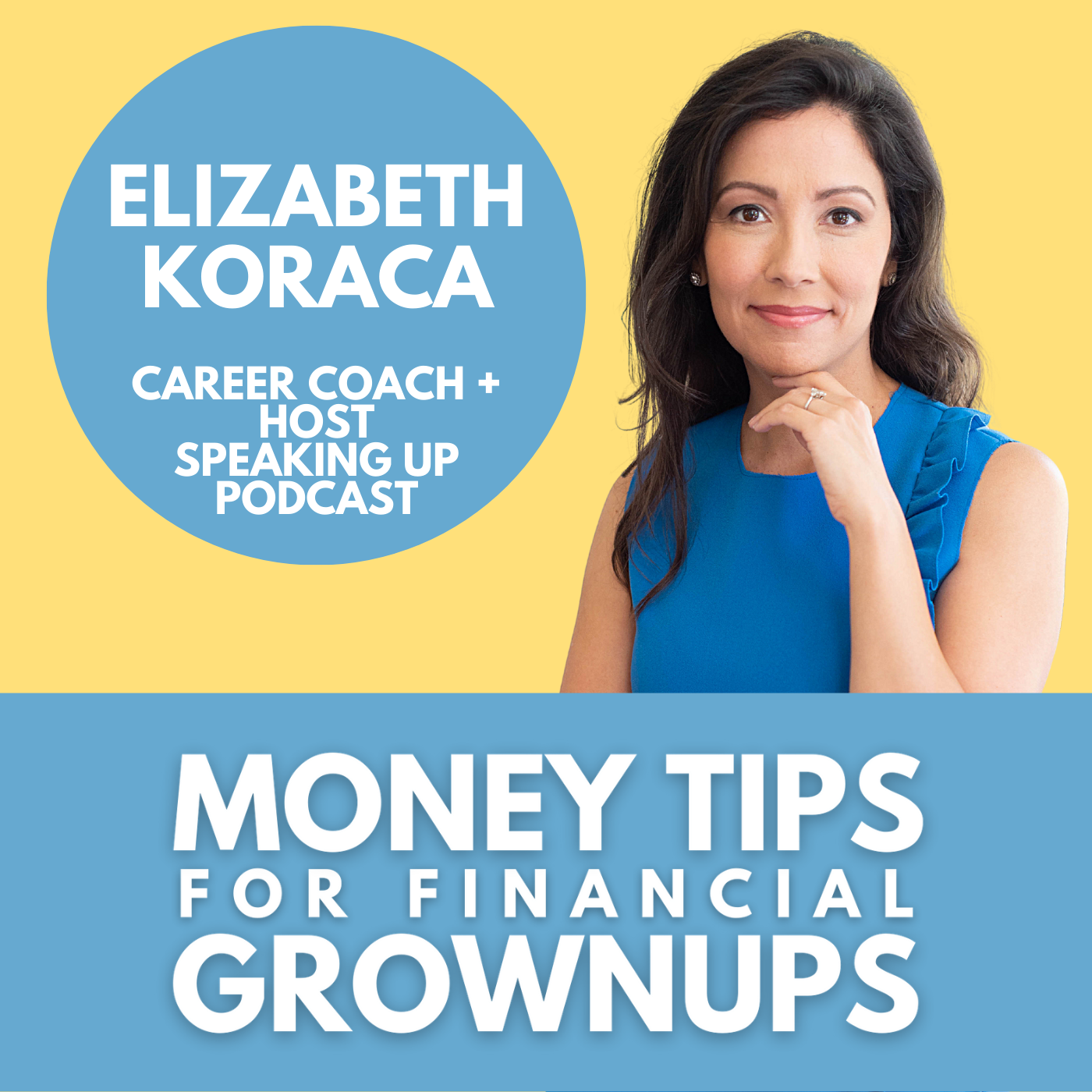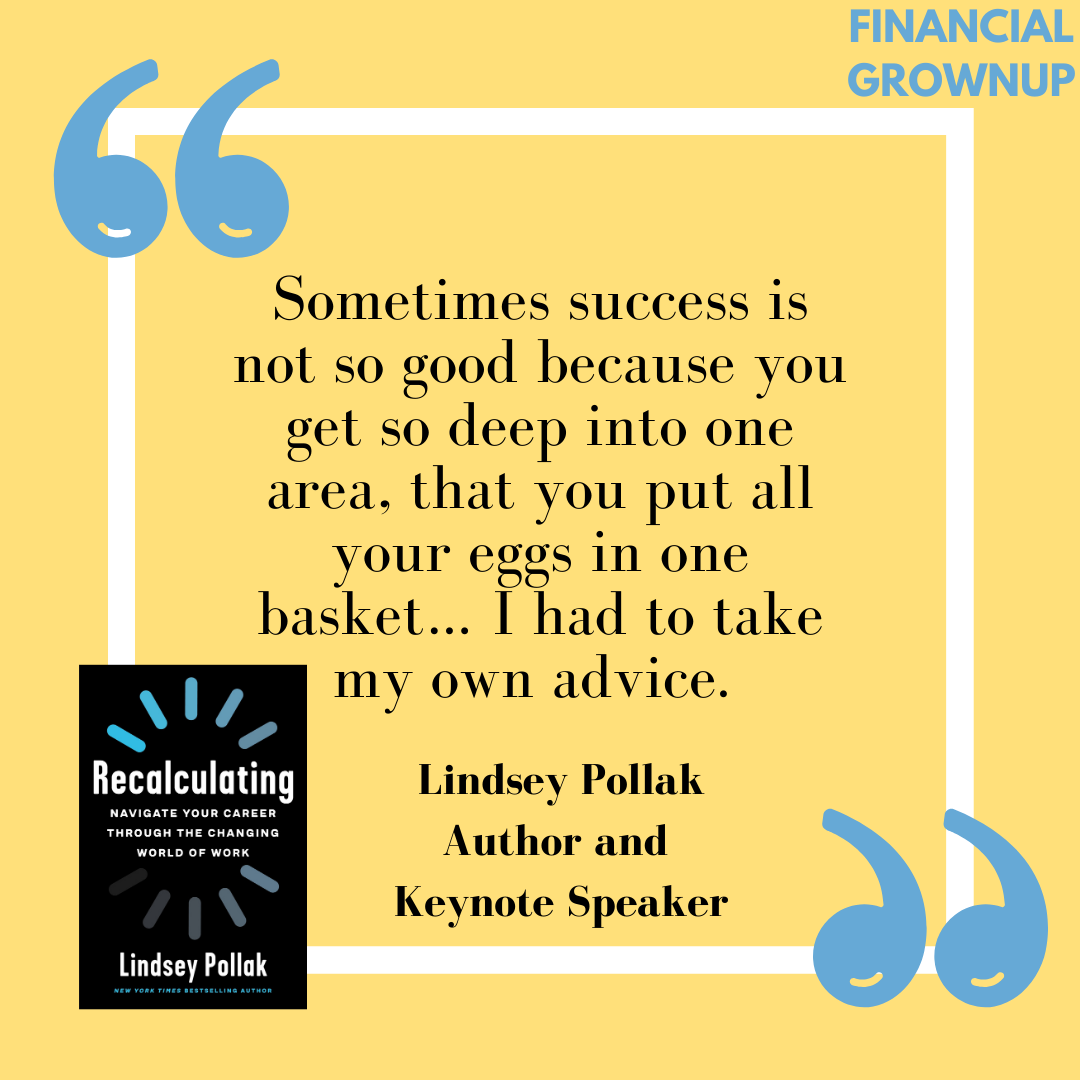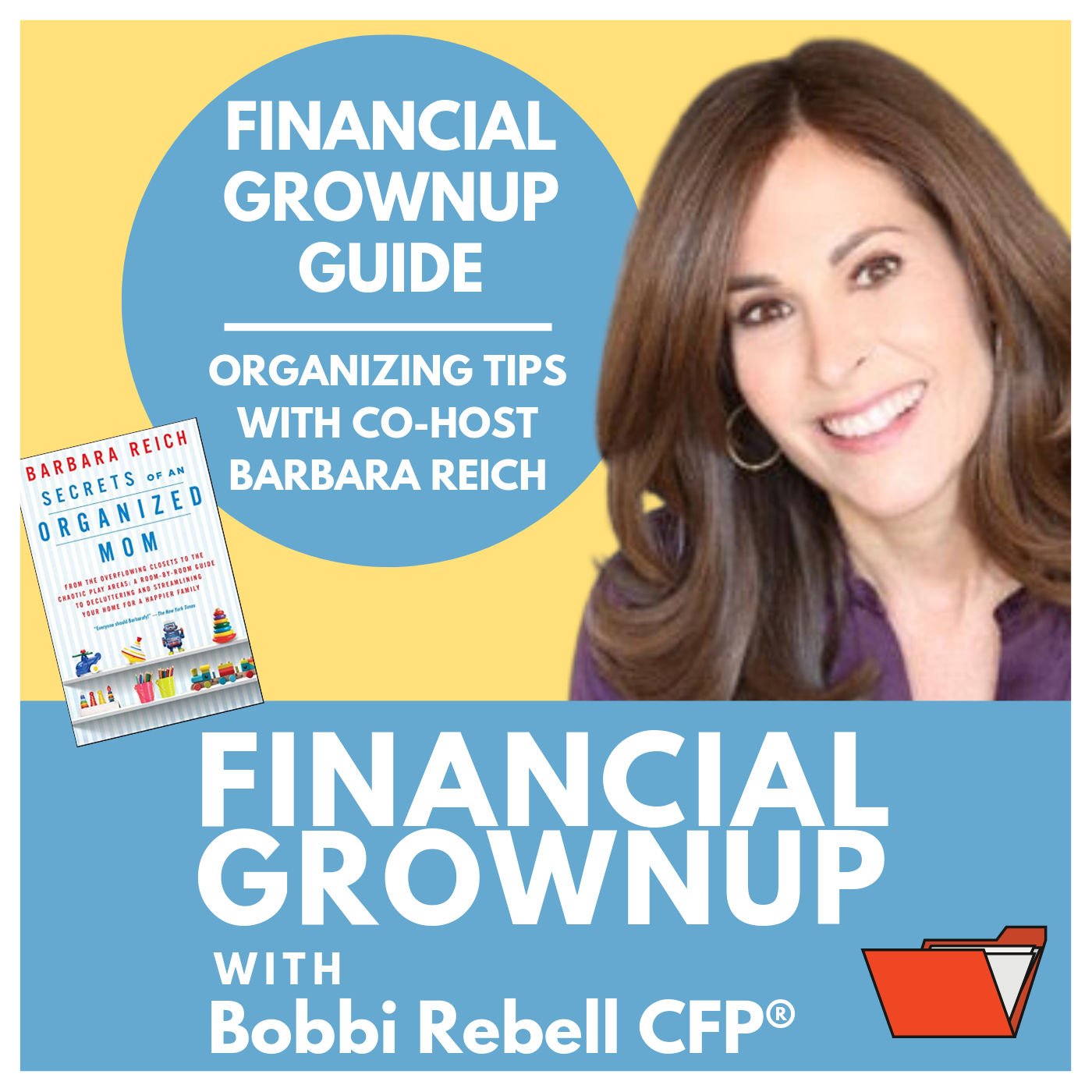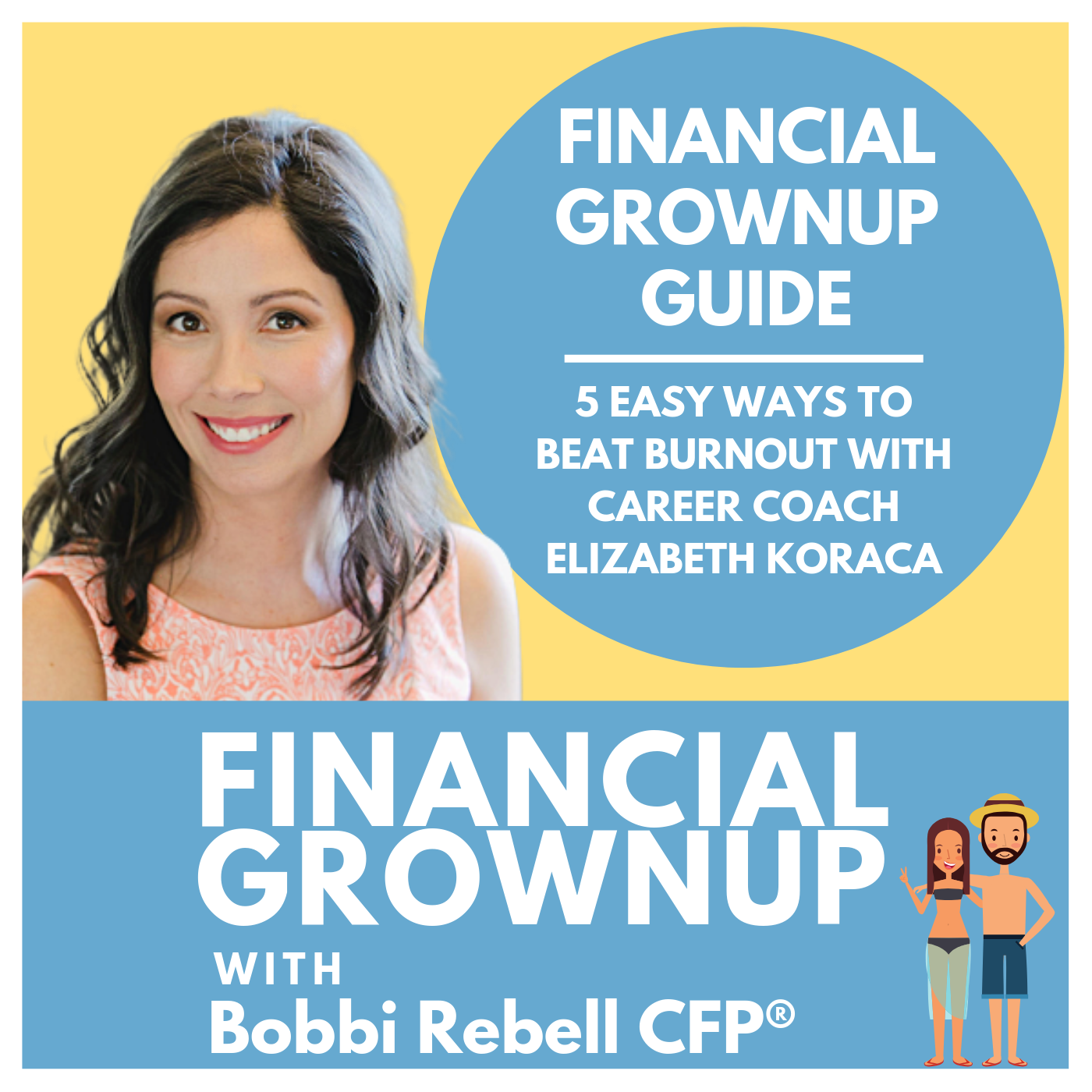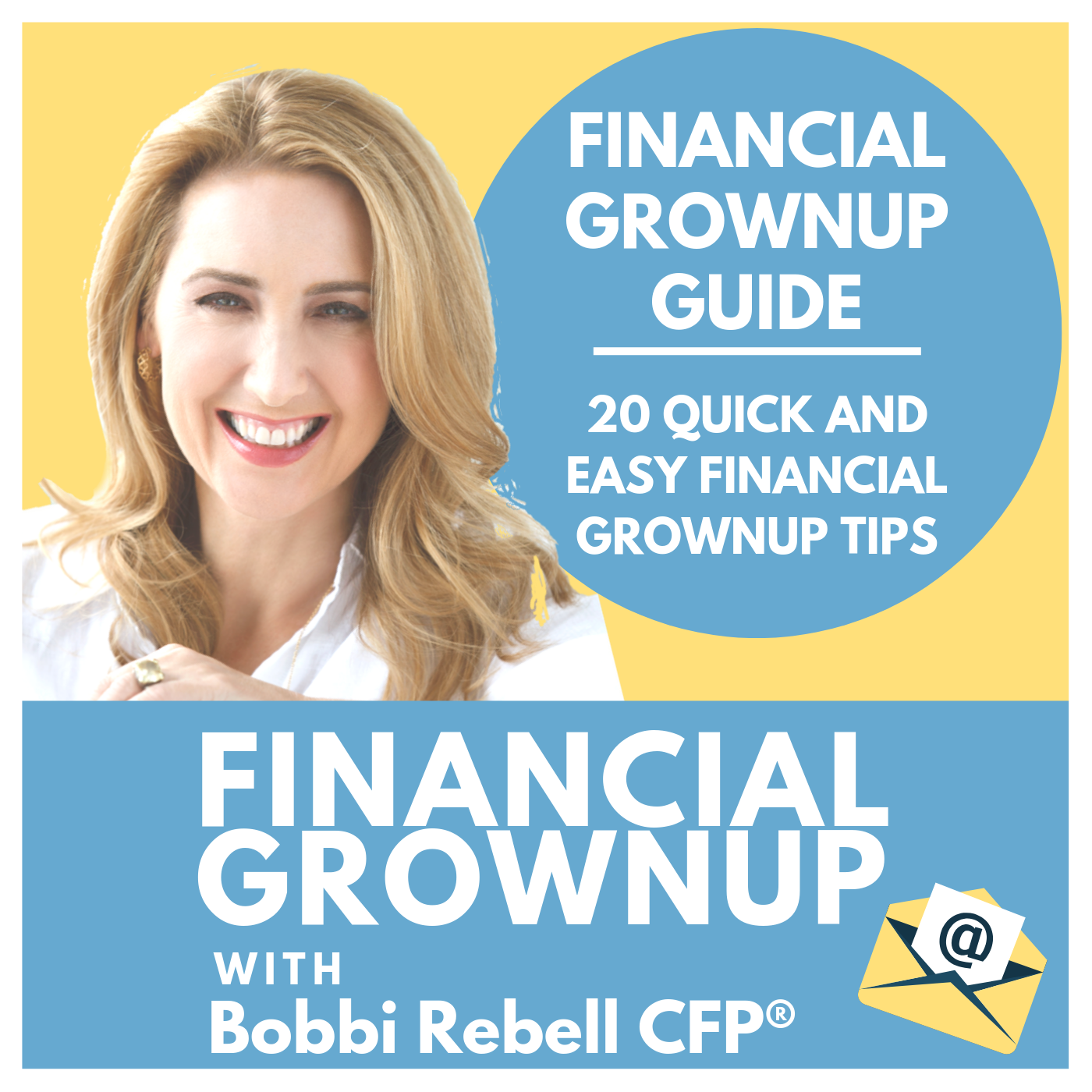Author Natalie Silverstein returns to the podcast to preview her latest book: Simple Acts: The Busy Teen's Guide to Making a Difference
Follow Natalie!
Instagram - @simpleactsguide
Facebook - @SimpleActsGuide
Twitter - @natsilverstein
LinkedIn - @natalie-silverstein
Websites - https://simpleactsguide.com and www.doinggoodtogether.org
Natalie’s new book - Simple Acts: The Busy Teen's Guide to Making a Difference
Follow Bobbi!
Instagram - @bobbirebell1
Twitter- @bobbirebell
LinkedIn- Bobbi Rebell
Website- http://www.bobbirebell.com
Buy my newest book - Launching Financial Grownups
Did you enjoy the show? We would love your support!
Leave a review on Apple Podcasts or wherever you listen to podcasts. We love reading what our listeners think of the show!
Subscribe to the podcast, so you never miss an episode.
Share the podcast with your family, friends, and co-workers.
Tag me on Instagram @bobbirebell1 and you’ll automatically be entered to win books by our favorite guests and merch from our Grownup Gear shop.
Full Transcript:
Bobbi Rebell:
Hey, grown up friends. A big thank you to so many of you that have already bought my new book, Launching Financial Grownups: Live Your Richest Life by Helping Your (Almost) Adult Kids Become Everyday Money Smart. This book was not easy to write, because I had to get honest with myself about what was working with my teen and young adult kids, and what was not working. And I also had to be prepared to share it with all of you. So, first of all, thank you for your support and your wonderful responses to it. There's definitely some things in there that you may not have been expecting to hear. By the way, I got a lot of help from my money expert friends, and also financial therapists and parenting experts. I am really happy with how Launching Financial Grownups came out, even though it really was hard to be, like I said, that honest. And it was a lot of work, but I really love doing it. And I'm really happy with how it came out.
Bobbi Rebell:
On that note, if you have not already, please pick up a copy of Launching Financial Grownups today. After you do, please share it on social media. Please leave a review on Amazon. Those reviews are super important, because the algorithm picks up on them, and that can make the book a lot more visible to more people. So, I truly appreciate it, and I really also appreciate all of your support.
Bobbi Rebell:
That feeling of when you give, the generosity, the good feeling that you get back in return is totally, totally worth it. Another cup of coffee that's costing you $8 at a fancy coffee shop, you don't need that cup of coffee.
Bobbi Rebell:
You're listening to Money Tips For Financial Grownups. With me, certified financial planner, Bobbi Rebell, author of Launching Financial Grownups, because you know what? Grown up life is really hard, but together, we got this.
Bobbi Rebell:
Hey, grownups love that coffee reference in the open. And it is true. Whether the mission is to give to ourselves in the form of investing, or to give to others, thinking twice about the little ways money is sometimes mindlessly spent can be a good exercise. Friend of the podcast, Natalie Silverstein, is back to share her new book, Simple Acts: The Busy Teens Guide To Making a Difference. Among the things that we talk about is fundraising, how to ask people for money, something I personally find very hard to do, even when it is for a really good cause that I'm giving money to myself. We also talk about social media, and how teens, and really, all of us, can leverage our followings for good. Just quickly, before we roll the interview, I want to thank everyone who has picked up copies of Launching Financial Grownups. I am sending virtual hugs to all of you, especially if you took just a couple of minutes to write a review on Amazon. I'm trying to get a hundred reviews, and I need each and every one of you to help me get there.
Bobbi Rebell:
I'm not going to lie, it is hard to keep asking, but it's slow going. You guys are busy. I get it. The link is right in the show notes, super easy. Also, if you're just on the Amazon page where you bought the book, scroll down, find it right at the bottom where it says post eight review or leave a review. You get it. I need this, and I appreciate all of you who do it so much. On that note, let's move on. Here is my interview with a fantastic Natalie Silverstein.
Bobbi Rebell:
Natalie Silverstein, you are a financial grownup. Welcome back to the podcast.
Natalie Silverstein:
Thank you so much, Bobbi. And it's so great to be with you again.
Bobbi Rebell:
Well, I'm happy to have you back to celebrate the launch of your newest book. Simple Acts: The Busy Teens Guide to Making a Difference, which is a follow up to your earlier book, which was, Simple Acts: The Busy Family's Guide to Giving Back, which was published in 2019. And by the way, it was named one of the top books for parents who want to raise kind kids by the Huff Post. I am a parent of a teen as our listeners know. I wanted to know more about this, especially how things have evolved over COVID. So, tell us a little bit about the book, what's changed since the first book, what's added for teens and COVID. That was five questions in one, so I'll let you go now.
Natalie Silverstein:
Well, thank you so much. It's so good to be with you again. And congratulations to you on the new book. I love it. I have two emerging adults. I have a 19 year old and a 21 year old. And believe me, I am using your book almost daily now. So, basically when the first book came out, which was really geared towards families with young children, it came out in April of 2019. It was thrilling. And pretty much the very same day, on the day of my big party for the book launch, which was such a fun day, I had several people come over to me and say, "This is great, and I want you to sign it/ and it's awesome, but when are you going to write one for teenagers?" So, even the rabbi from our temple came over, and he's like, "This is awesome, but can you do one for kids doing bar and bat mitzvah and confirmation?"
Natalie Silverstein:
I'm like, "Okay, rabbi, can I just enjoy this moment for five minutes before someone asks me to write the follow up?" But I see the point there, which is that book was really for families with young children, and it was really about living our values and how we go through our days and setting this precedent for our kids and setting this example, role modeling this. And it's important, but it's really important as kids age and grow into compassionate and empathetic adults and young adults. And so immediately, I started thinking about the follow up. I had a proposal, and I got it out there into the world and I signed a contract, and literally was starting to write the new book in March of 2020. So, we all know what happened then. The world sort of shut down. I had a couple of months to write the book. And I was bereft, as everyone was.
Natalie Silverstein:
As schools shut down, my oldest child came home from her freshman year of college. She was disappointed, to say the least. So, we were all living together under one roof, remote school, remote everything. And it was tough. A mutual friend of ours, Erica [inaudible 00:06:23], reminded me that I should really write a little prologue, a little forward to the book, and explain the conditions under which I was writing this, and how for a few minutes there, I wondered to myself if this was really important. And I didn't know what was happening in the world. And my kids were just, again, bereft as everyone's kids were. They lost so much. And then slowly, day by day, as per Mr. Rogers, I looked around and I started looking for the helpers, right?
Natalie Silverstein:
And this was the story of the early days of the pandemic, certainly, where the only thing giving us hope, getting us out of bed in the morning was knowing that the situation was pretty dire, but there were people out there willing to literally risk their lives, to help us and to get our food delivered and to take care of those who were ill, et cetera, et cetera, et cetera. So, the way that we got out of our sadness and depression and hopelessness was to volunteer, to engage, to send pizzas to the local emergency department, and to bake and to make blankets, and you name it. And that's what my kids and I did, when they weren't doing online school for those first few kind of really tough months. So, it was that mindset that sort of informed the work. I had an outline. I knew what I wanted to talk about, but it really re-energized my belief that serving others, caring for others, turning our focus outward helps us to feel better and to feel more hopeful, to feel less isolated.
Natalie Silverstein:
And so I just really felt like this was a message that teenagers, in particular, needed to hear, because they had really lost so much. So, the book emerged from that. It is written for teens, as opposed to being written for parents. And so that was an important piece of it too, because I didn't want to be preachy, right? I didn't want to talk down to kids. I didn't want to be corny. In your book, you talk a lot about speaking to your kids in a way that isn't preachy, that isn't nagging, right? You want them to make these choices and these decisions, you want to give them options, but you want it to come from them, and you want to encourage them to come up with these ideas, these things that they're passionate about so that they can find their purpose and they can connect to it. And that's how we're going to get them to do the work long term and to stay engaged in it.
Bobbi Rebell:
So, let's go over some of the money tips that you have in the book, because money does make a big difference when it comes to helping organizations. It does matter. It's important to be there in person too, but money can make a huge difference and should never be underestimated. The first thing that I think a lot of people find really hard is fundraising. You say it's easier than you think. Tell us how is it easy, because I find it totally intimidating. I've done fundraisers. It's hard.
Natalie Silverstein:
It is. It is hard. It's sort of funny. I've done a ton of fundraising for our kids' school, for our temple, for other organizations. I actually don't have a problem asking people for money, because I remind myself that the worst thing that someone can say is no. And if you're passionate about something, if you really care about an organization and its mission and what it is trying to accomplish, you're not asking for yourself. I'm not asking you for money so I can put it in my own pocket or go buy myself something. I am asking you to come on board with me. And it's also requiring me to express to you, to articulate to you why this cause is so important and why it matters, and why your donation will make a difference and how. And so I find that fundraising is this really wonderful way to distill what it is that you care about, why, why you have decided to give some of your very hard-earned money to this cause to help, and why it is worth trying to convince others to do the same.
Natalie Silverstein:
And so I think there are so many skills here that I've just described that I think we want our young people to have, which is understanding what they care about, knowing how to articulate it, and really trying to convince someone else, and then also developing kind of a thick skin. Because again, the worst thing that someone can say is no. You say, "Thank you. Thanks for consideration. Thank you for your time today." And you move on. And you need to let that sort of roll right off of you. I find, in asking people for money, people aren't typically rude about this. I'm not talking about cold calling, but I'm saying, asking folks, who you have their attention and talking about this fundraising issue. I think most of the time, people are receptive to this. They support the effort if they can. If they can't, they will apologize and say, "I'm sorry, I can't help you today," or whatever it is. I really think that this is a great life skill.
Bobbi Rebell:
You point out that money is important. No matter how much you make, you do have something to give. It doesn't have to be only about dollars.
Natalie Silverstein:
Right. Absolutely. I want kids to really tap into... And you'll see, there's a chapter of the book that really talks about what's your, why? What are the things that you're passionate about? And then what are your talents, your skills, your strengths, the things that you enjoy doing? And I want people to be sort of expansive in their thinking about this. When I say talents, I don't mean, are you a concert pianist? I mean, are you particularly strong? Are you really patient? Do you love to read? Do you have really neat handwriting? Are you great with technology? Which let's face it, every teenager is. They're technology natives. Can you go to a senior center and help elderly folks to learn how to use their phones, or how to use the FaceTime so that they can communicate or Zoom with their families? Every single kid has a talent or a gift or a strength that they can share. And they might not know it. And a lot of kids are very insecure, especially after these last few years.
Natalie Silverstein:
And they probably feel like, "Ugh, I don't really have anything special about me. What could anyone use that I have?" But every single kid has something special about them that they can share.
Bobbi Rebell:
Consistency is something that you talk about as being very important. Once you choose a cause, especially if it's a school you maybe went to, your alma mater, or whatever it is, to consistently to have. I think that's important, because you can make more of an impact if you're more consistent with one organization, whether it be small or large. Having that ongoing relationship can be really meaningful in your life. I have found that myself.
Natalie Silverstein:
Yeah, absolutely. I think there are a few things here. There are organizations that where you can set up to have a monthly donation come automatically out of your bank account or out of your PayPal or whatever. So, we do this with God's Love. We deliver here in New York City. I automatically give them some very small amount, but it comes out of my bank account or my credit card every single month. So, I don't even think about that. That automatically goes to them. And so consistently, over the course of years, that adds up, right? And then in terms of your alma mater or giving to a school or to another organization... I got a scholarship when I went to college. I don't know about you, Bobbi, but there was no way I was going to college unless I got scholarship money and loans and work study. My parents were immigrants, and I was the first of my family to go away to college.
Natalie Silverstein:
And the school that I attended was able to give me an academic scholarship, which meant that I got a certain amount of money, I want to say about $5,000, if I stayed on the Dean's list every semester for four years. So, this was a motivator for me to do well and to work hard in my academic work. I also had work study money that came in, so I worked a job. And that money bridged the gap and made it possible for me to attend college. So, my mom said to me, and they were not big philanthropists. They had come here with nothing in their pockets, not speaking the language. And they said to me, when I graduated, "They helped you. They gave you this gift of this scholarship money.
Natalie Silverstein:
It is your responsibility to give something back to the college, as much as you can when you're working." So, my very first job... I graduated in 1991. And I recently checked with the alumni office. I've given a gift to my college every year since 1992. Now, those dollars were not huge. Probably in the beginning, it was probably $25 or something, a hundred dollars. I don't know, but that adds up. And any development professional will tell you, it almost doesn't matter. Consistency is what matters. Participation is what matters. The loyalty to this, that I believe in this school, and it is important to me for my family to give back. And PS, over time, as my circumstances have changed, I've been able to increase that amount. And so that's just golden. And I think that's so important, and it makes me feel really, really great.
Natalie Silverstein:
And so I think having those types of things in your life, the things you really care about, you can show that you support this cause. This is important enough for you to set aside some money. As we know, there's been a lot of studies done, that those who do tithing in their religious communities, et cetera, typically folks who have less money give more as a percentage of their income, because it is just kind of what they feel is expected of them, and it's how they want to give back to support this organization, this cause, this community. And so I would just encourage young people to think this way, and to know that they always have something to give. And that feeling of when you give, the generosity, the good feeling that you get back in return is totally, totally worth it. Another cup of coffee that's costing you $8 at a fancy coffee shop, you don't need that cup of coffee, right? That $8 can probably make a bigger difference for an organization that really needs it. And I just want young people and teens to think about that.
Bobbi Rebell:
You also talk about using social media.
Natalie Silverstein:
I don't know about you, but I only want to follow and look at positive messages online. There is enough bad news in the world, if I try and watch any of the nightly news. I don't need to see negative messages on Twitter or Instagram or Facebook or anything else. So my account, which is simpleactsguide, all I do is promote the volunteer work that I do, the organizations that I support, other folks that I know who are doing good things. I just amplify amplify, amplify positive messages. And if I'm doing great out in the community, or I'm fundraising or I'm volunteering somewhere in a hands on way, and I want to share that, I just blast that out.
Bobbi Rebell:
Tell us where people can follow up with you on your socials, and also your website and key resources.
Natalie Silverstein:
I am @simpleactsguide. That's the Instagram account. That's my main platform really, because I love using photographs. So, simpleactsguide. And that's also on Facebook. And that's also the website, simpleactsguide.com.
Bobbi Rebell:
Natalie Silverstein, thank you so much.
Natalie Silverstein:
Thank you so much, Bobbi. It's such a pleasure to be with you.
Bobbi Rebell:
Natalie had so many great ideas. Again, a reminder full transcripts on my webpage, Bobbirebell.com, so no need to take notes. I follow Natalie, by the way and her simpleactsguide account on Instagram, and it is always a mood lifter and motivator. So, please make sure you are following her. And the simpleactsguide has a separate page, so follow that too.
Bobbi Rebell:
What is motivating you guys this summer, besides obviously Natalie? Please follow me on Instagram a@bobbirebell1, and on Twitter @bobbirebell, and DM me to let me know that you are part of the Financial Grownup community, so I can follow you back. And then let me know what is motivating you. What's getting you excited, especially with so many things finally opening up. And even though it is so crazy expensive, I know a lot of us are really getting down to it and taking those vacations that we have put off for so long. For more on Natalie, please check out our show notes.
Bobbi Rebell:
You can get those right on my website, bobbirebell.com, where you can also get our free newsletter, and as I mentioned, free transcripts of every podcast. I also want to support your company or organizations that you care about by being part of upcoming events that you might have, or if you have a need for personal finance education or consulting, get in touch by going to the work with me section on my website. I'm looking forward to hearing from you guys. I can't wait to hear back from everyone after you check out Natalie's book as well. As a reminder, it is called Simple Acts: The Busy Teens Guide to Making a Difference. And big thanks to Natalie for always making sure we are at our best as financial grownups.
Bobbi Rebell:
Money Tips For Financial Grownups is a production of BRK Media, LLC. Editing and production by Steve Stewart. Guest coordination, content creation, social media support, and show notes by Ashley Wall. You can find the podcast show notes, which include links to resources mentioned in the show, as well as show transcripts, by going to my website, Bobbirebell.com. You can also find an incredible library of hundreds of previous episodes to help you on your journey as a financial grownup. The podcast and tons of complimentary resources associated with the podcast is brought to you for free, but I need to have your support in return. Here's how you can do that. First, connect with me on social media @bobbirebell1 on Instagram, and bobbirebell on both Twitter and on Clubhouse, where you can join my Money Tips For Grownups club. Second, share this podcast on social media, and tag me so I can thank you.
Bobbi Rebell:
You can also leave a review on Apple podcasts. Reading each one means the world to me. And you know what? It really motivates others to subscribe. You can also support our merch shop grownupgear.com, by picking up fun gifts for your grownup friends and treating yourself as well. And most of all, help your friends on their journey to being financial grownups by encouraging them to subscribe to the podcast. Together, we got this. Thank you for your time and for the kind word so many of you send my way. See you next time. And thank you for supporting Money Tips For Financial Grownups.





